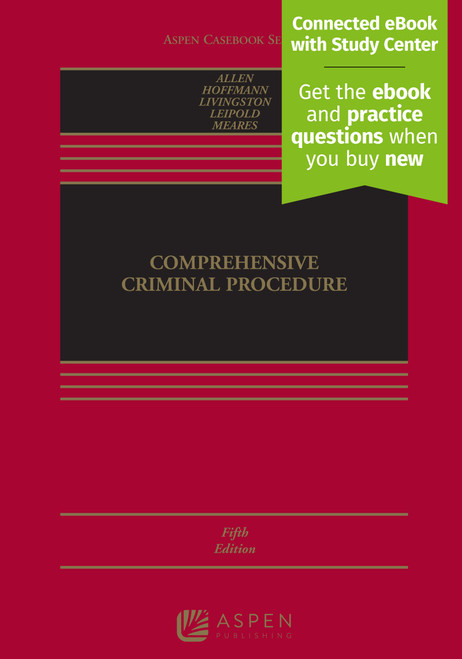Fundamentals of Criminal Practice: Law and Procedure focuses on the types of actions that are taken by the police, prosecutors, defense attorneys, and paralegals who handle criminal cases. From investigation and discovery, to trial and sentencing, this text traces every step of the way through four hypothetical criminal cases that illustrate procedure, raise discussion questions, and engage students in skill-building exercises. Realistic and practical, Fundamentals of Criminal Practice prepares paralegal students for success in a prosecutor or defense counsel's office.
Complete and practical, Fundamentals of Criminal Practice: Law and Procedure, features:
- a logical three-part organization
- Criminal Law: The criminal justice system, principles of criminal law, and types of criminal offenses
- Criminal Procedure: From commission of the offense to plea bargaining and diversion
- Criminal Procedure: Trials and their aftermath
- an emphasis on the role of paralegals, lawyers, and law enforcement in criminal cases
- four hypothetical cases woven throughout the text that illustrate procedure, raise discussion questions, and offer opportunities for research exercises
- a state reckless homicide charge, involving drunk driving
- a drug possession case that could be prosecuted in either state or federal court
- two federal securities fraud cases
- coverage of both white collar and street crime from both state and federal perspectives
- excerpts from statutes, court opinions, investigative reports, and pleadings
- Strong pedagogy
- discussion questions
- exercises
- marginal definitions
- references to useful websites
- end-of-chapter review questions
- assignments that mirror the tasks a paralegal would perform in a prosecutor or defense counsel's office











